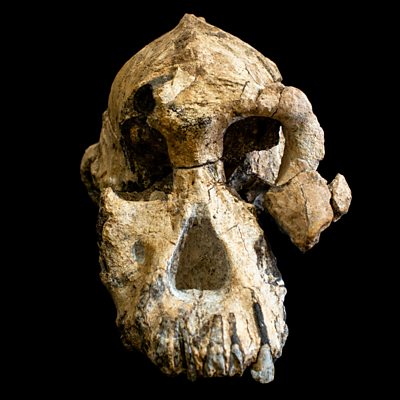Episode details

World Service,1 min
Researchers discover 3.8-million-year-old skull of early human ancestor
World UpdateAvailable for over a year
Researchers have discovered a nearly complete 3.8-million-year-old skull of an early ape-like human ancestor in Ethiopia. An analysis of the new specimen challenges ideas about how the first humans evolved from ape-like ancestors. The current view that an ape named Lucy was among a species that gave rise to the first early humans may have to be reconsidered. Professor Robert Foley, an archaeologist from the University of Cambridge, explains the subtle differences between the specimen's appearance and Lucy's. Photo: The skull of the species Australopithecus anamensis Credit: Reuters
Programme Website